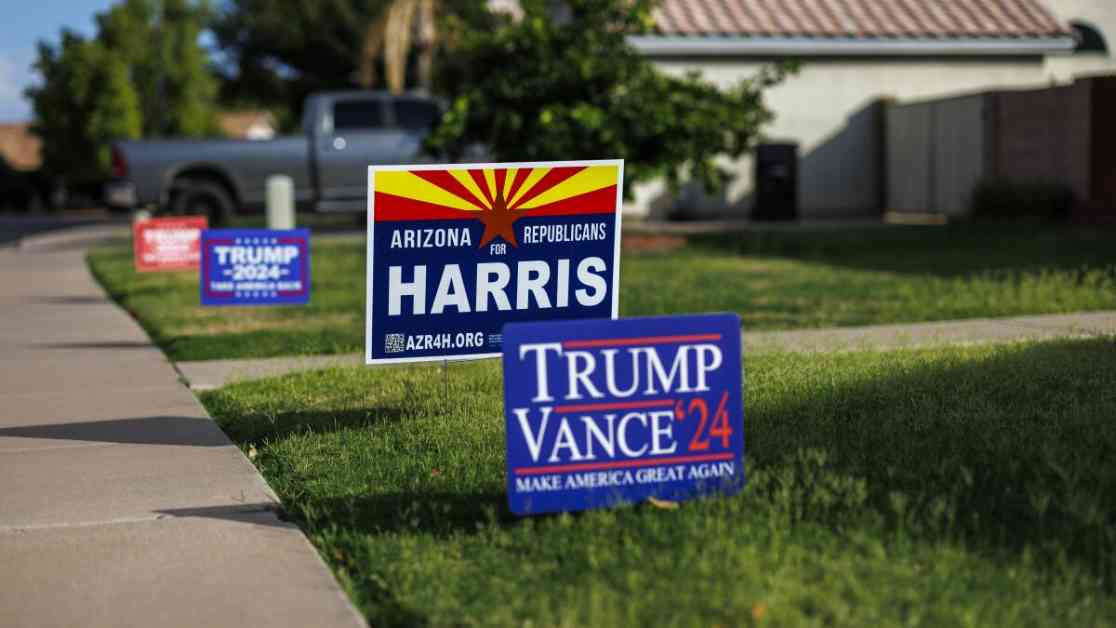In a quiet residential street in Mesa, Arizona, Jeremy Spilsbury was taken aback when he noticed his neighbor’s new yard sign that read, “Cucks for Harris.” After googling the term, he discovered its offensive nature and felt appalled. This incident highlighted the shifting political landscape within Arizona’s Latter-day Saints community, traditionally known for their strong Republican support.
Despite being predominantly Republican, there is a growing trend of some Mormons moving away from the party line. This shift was evident in the emergence of groups like “Latter-day Saints for Harris-Walz,” signaling a potential erosion of unwavering Republican loyalty among church members. The political dynamics within the community are evolving, with individuals openly expressing differing views and opinions.
The efforts to capture Mormon votes in battleground states like Nevada and Arizona have intensified, with campaigns from both sides targeting this demographic. Vice President Kamala Harris’ team has launched advisory committees specifically aimed at engaging with Latter-day Saints voters, challenging the long-held belief of Mormon homogeneity in political beliefs.
The intersection of religion and politics has become increasingly complex, with church members like Julie Spilsbury and Tara Rowland finding themselves on opposite ends of the political spectrum. While the Church of Jesus Christ of Latter-day Saints maintains official neutrality on political matters, individual members are navigating their political identities in an ever-changing landscape.
Julie Spilsbury’s decision to publicly support the Harris-Walz ticket as a Republican city council member sparked controversy within her community. The clash of values and beliefs played out in debates over issues like discrimination and LGBTQ+ rights, revealing deep-seated divisions among church members on social and political issues.
The encounter between Jeremy Spilsbury and Tara Rowland over the controversial yard sign highlighted the tensions within the community. Their exchange underscored the challenges of maintaining unity and respect in the face of differing political views. As Mormons grapple with shifting loyalties and evolving political landscapes, the intersection of faith and politics continues to shape the dynamics within the community.
In conclusion, the evolving political landscape within Arizona’s Mormon community reflects broader trends of political polarization and shifting allegiances. The clash of values and beliefs among church members highlights the complexities of navigating faith, identity, and politics in an increasingly divided society. As Mormons grapple with diverging political views, the challenge of fostering unity and understanding remains at the forefront of their community dynamics.



























